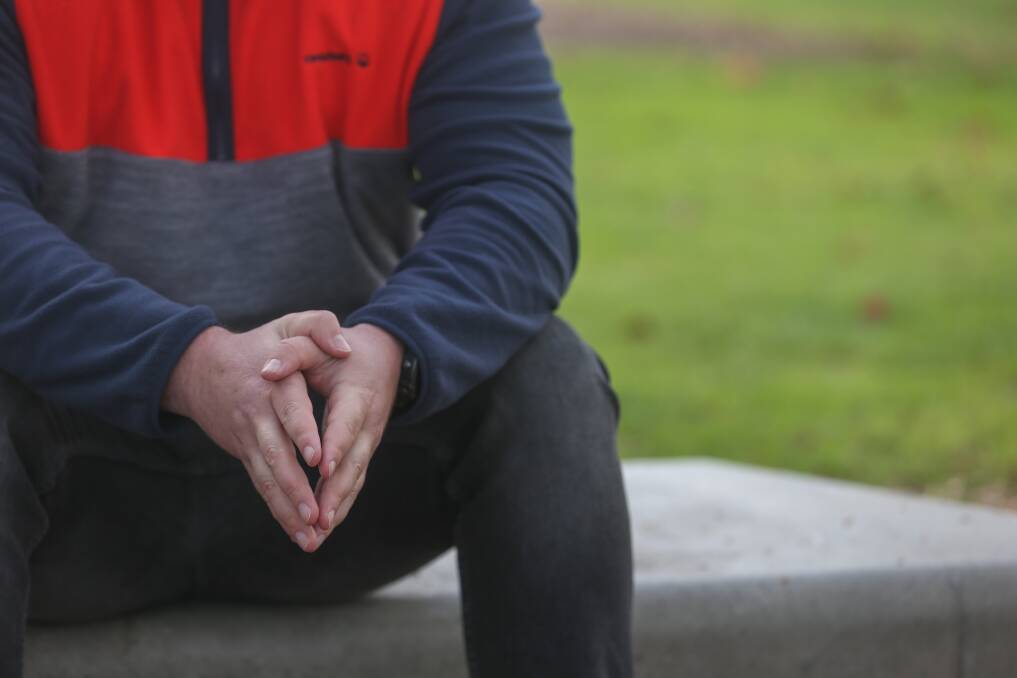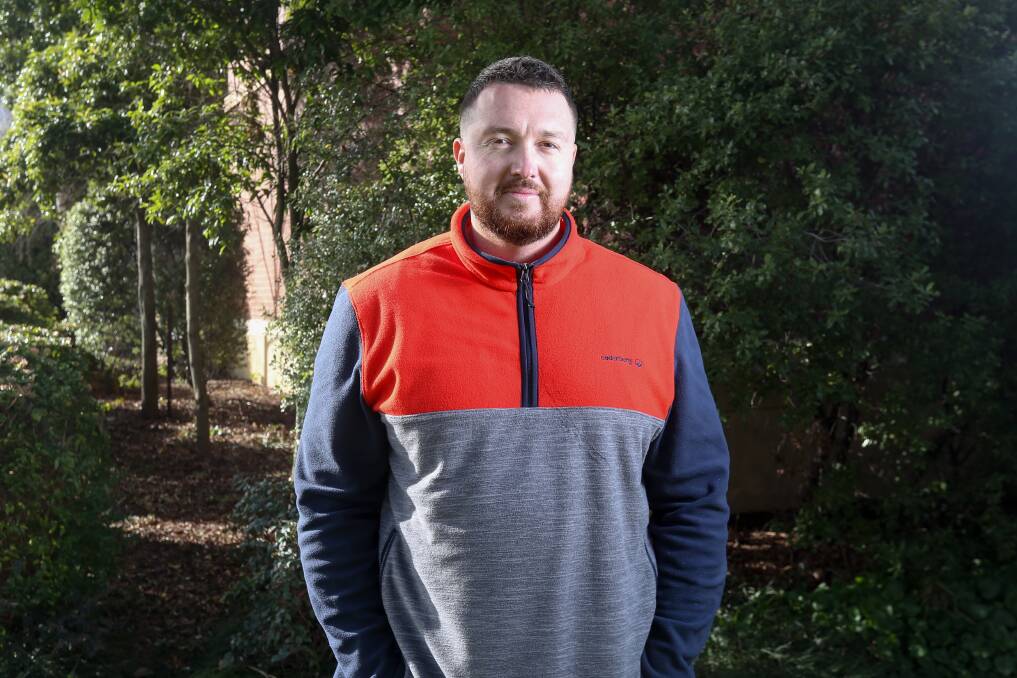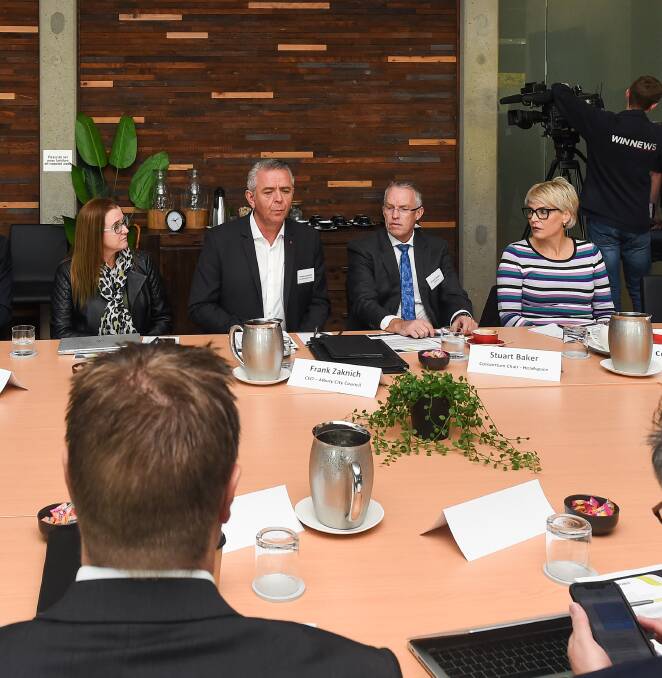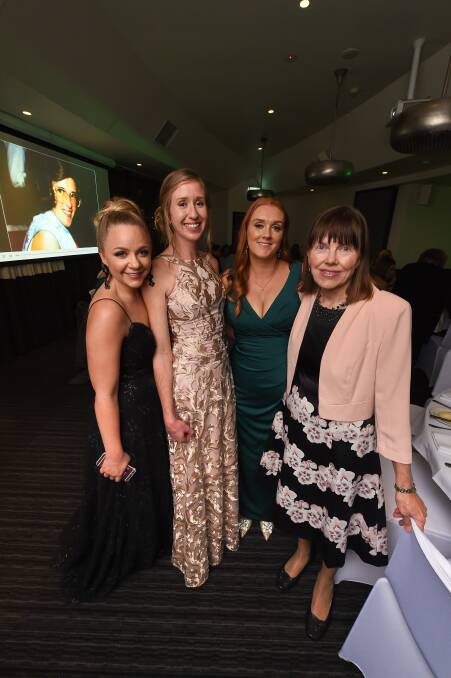
I honestly can't remember the last time I felt happy. Anyone who lives with chronic depression knows it.
Subscribe now for unlimited access.
or signup to continue reading
Will I get into another relationship? I don't know. Will I get back to work? I don't know. Will I be able to be with friends and family and actually be in the moment? Who knows.
These were the questions Richard Hendrie had six months ago, after being accepted into a ketamine trial in Canberra.
The Henty man was apprehensive but relieved to be trying something new.
Medication, CBT, DBT, EMDR, TMS - after 15 years, he had learned all of the acronyms in the psychiatry handbook.
Something had to work, and thankfully, ketamine did.
The two-week trial in November involved 45-minute, daily transfusions of the drug, and Mr Hendrie was seeing positive indications after the third treatment.
"The thing that I noticed almost immediately, was my clarity of thinking," he told his YouTube followers.
"I haven't had that for probably a decade. I'm optimistic, and I haven't said that word in a long time."
Mr Hendrie knows there will be no silver bullet; managing chronic post-traumatic stress disorder, dissociation, and major depressive disorder is complicated.
But this latest chapter in his health journey is a positive one, having spent 20 months of the past three years in public and private hospitals.
During his most recent hospitalisation in June last year, Mr Hendrie was among the mental health patients put on medical and surgical wards at Albury base.
"I was being asked to do things that are totally counter-intuitive to dissociative disorders," Mr Hendrie said.
"I was asked to do mindfulness and I was given medication to make me more calm - despite me being as calm as you could get in a dissociative phase.
"They asked me to sign a form to say I was refusing care. I asked, 'What care?' - apparently sitting in a bed in the hospital.
"It's like putting a heart patient in a cancer ward.
"I could have been somebody who was violent, and I was next to a 90-year-old bloke who was blind."
While awaiting a bed in Nolan House, Mr Hendrie met Bethany Ward.

Ms Ward, who was caring for her mother, overheard the conversation between Mr Hendrie, his mother and staff.
"His mum was saying, 'He's a bum in a bed'," Ms Ward said.
"That's when I struck up a conversation and they told me Richard was going to discharge himself.
"It wasn't just Richard or my mum - there were probably seven people sitting in medical beds - they didn't have space because of COVID.
"Nurses were putting medication by the beds and walking away - they were medical, not mental health nurses.
"When you've got a 70-year-old woman that had to take her son home because she can't get help at a hospital, you know we've got problems."
It is well-recognised that emergency departments largely do not fit the needs of people who are mentally unwell.
The over-stimulation and lack of expert support can exacerbate mental health crises.
A range of new supports have been recommended by the Victorian Royal Commission into Mental Health, which will reduce the demand on emergency departments but ensure they remain open for those in need.
The report states there will be new youth and adult mental health and well-being services with a focus on community care.
The "North East" service area will comprise Benalla, Mansfield, Wangaratta, Indigo, Wodonga, Towong and Alpine and there should be "at least one emergency department with a fully functioning crisis hub".
Survivors of Suicide and Friends co-founders Annette and Stuart Baker believe the addition of an acute youth service will be crucial.
"They have to go to Box Hill or Orange - we're told about that all the time - the services just aren't there," Mr Baker said.
"The system at the moment is not working.
"So, it's great that there's been a Royal Commission. It's promising that they're going to implement all 65 recommendations, and if they follow through with it and do it properly, it's going to be a great outcome.
"I would just like to see the investment start to flow, and for them to strategically pinpoint how they're going to make a difference straightaway.

"We (Albury and Wodonga hospitals) are administered by Victoria, so you would expect we get whatever the rest of Victoria gets."
Mr Hendrie is less optimistic about the Royal Commission and has talked through his frustrations about the system many times with the Bakers.
"You can change systems and move money around all you want, but unless you actually change the broader culture of treating people with dignity and respect, you're never going to get change," he said.
"My experience when I've been in Nolan and Kerferd, is 90 per cent of the time you have a nurse sitting on their phone, and they're medication compliance police.
"You're never going to get change whilst you still triage people in emergency departments - the whole concept is counter-intuitive for mental health anyway.
"It comes out of the World Wars - where you're deciding who lives and is worthy of care and who dies.
"Presenting with mental health issues, you're not a four out of 10 or a nine out of 10.
"You can be acute one minute and then presenting perfectly fine the next minute.
"Mental health is treated as a homogeneous society where we are all the same, and we're not."
Mr Hendrie said new settings could and should be created immediately; he has been giving feedback on initial plans for a project in Wagga involving suicide prevention organisation Roses in the Ocean.
"Rather than going to the emergency department, there will be a purpose-built house which will triage mental health patients," he said.
"I would really love Albury Wodonga Health to step up with mental health and employ a decently-trained peer workforce, people with lived experience, to walk alongside people and get them in management roles.
"I'd love to see an outreach service actually going to where young people are, employing the proper people in high schools and universities, which doesn't pathologisise them.
"For most young people, their experiences are perfectly congruent to what they're feeling.
"It's actually really OK to be sad or anxious. It doesn't mean you're depressed, it doesn't mean you have anxiety, but we don't have that conversation.
"Those feelings are perfectly normal in terms of building resilience, and releasing what you want out of life - realising that disappointment is OK, and tragedy is a part of life.
"I'd love for an organisation to be speaking to young people about what mental illness isn't."
Mr Hendrie is a consumer member of Albury Wodonga Health's acute mental health steering committee, bringing his personal experience and knowledge gained in post-graduate studies in psychology and social work.
"It's not all doom and gloom - it has been a privilege to work alongside AWH's operational director, Dr Leah Wiseman, for the past several months in an adhoc voluntary advisory capacity," he said.
"I have seen lots of positive and innovative changes led by Leah which have mostly been consumer co-designed and consumer centered.

"These are reforms I am always happy to be a part of to make life a bit better for our more vulnerable consumer cohorts who might not have my social capital or education to back them up.
"But this needs to be consistently supported and funded by those at the very top.
"For cultural changes in large health organisations to be realised, politicians, boards and executives like those at AWH need to start listening to progressive, knowledgable and caring executives like Leah and they need to listen to consumers - when they do, I'm sure more positive changes can be made and sustained."
The need for structural change is perhaps no better evidenced than in the story told by Mary Pershall, who spoke on the Border in 2019 and was a witness at the Royal Commission.
Her daughter, Anna, an old friend of Ms Ward's, used crisis services frequently before being jailed for killing her housemate.
"In her witness statement and evidence before the Commission, Ms Pershall said that the mental health system failed to recognise the severity and escalation of Anna's mental illness and distress, because they treated each crisis event in isolation," the report stated.
"Following a violent outburst at home and threatening suicide, the police took Anna to an emergency department, where Mary said she was devastated when she was told Anna would not be admitted.
"In a future mental health and well-being system, Mary would like to see better information flow between services such as the police, hospitals, GPs, social workers and the families of people experiencing mental illness, and better integration of information."
Ms Ward agreed with the need for a better-connected system.
"Right now, we have a mental health system where no one engages with each other," she said.
"A doctor will refer you to a psychologist but it's up to you to get to that psychologist.
"It's left to the individual to take full responsibility for their mental health, when they might not have the capacity to get up out of bed in the morning."
IN OTHER NEWS:
Ms Ward said ultimately, empathy from top to bottom would be the most important impact of the Mental Health Royal Commission.
"The initial engagement somebody has with the system sets them up for the rest of their recovery, and a lot of the time they go in and the response is harsh and cold.
"It makes them feel like they are a burden and they don't want to be there.
"There needs to be person-centered care."
- If you are not in immediate danger but you need help, call NURSE-ON-CALL on 1300 60 60 24. For crisis support, contact Lifeline on 13 11 14.


